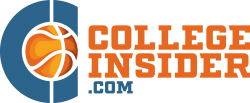A guide on drug abuse for college athletes
College athletes feel pressure to succeed, especially with the level of competitiveness in college athletics.
While the likes of esports gaming (extensively reviewed on crypto esports betting) may not require maximum physical fitness, real-life athletics do --especially at the college level.
This can make aspiring college athletes turn to performance-enhancing drugs to improve fitness levels and gain a competitive edge over their rivals.
However, the lure of these drugs comes with attendant risks, including drug abuse and addiction, medical reactions, psychological problems, and legal consequences.
Most college athletes do not know the risks they face by doping.
We will discuss the types of performance-enhancing drugs, how to avoid them, the consequences of drug abuse, and how to seek help if addiction has set it in.
Types of Performance-Enhancing Drugs
Several drugs are banned by athletic committees worldwide as they are believed to give users speed and strength higher than their usual performance.
This gives such doping athletes an unfair advantage over their more natural counterparts. Unfortunately, most college athletes don't know which performance-enhancing drugs have been proscribed.
Here are some doping drugs that are strictly prohibited for professional athletes:
Anabolic Steroids
Anabolic steroids use the testosterone hormone to improve strength and muscle mass. These are most often favored by male athletes who want to build their muscles and improve performance.
They also reduce pain and muscle strain from workouts, which helps athletes work out more frequently.
Androstenedione
Androstenedione, commonly referred to as andro, is a hormone that transforms into testosterone and estrogen.
Although it is a prescription medicine in most countries, some athletes use it illegally for performance-enhancement purposes.
Designer Steroids
Designer steroids are a form of anabolic steroids which are considered to be particularly dangerous.
These drugs are illegally created and distributed to athletes. Apart from being disqualified from college sports, athletes could serve jail time for using these drugs.
Diuretics
Diuretics are a class of PEDs often known as 'masking agents.' They often help athletes pass drug tests.
They also change the body's balance of fluids and electrolytes, leading to water loss. They are often used with other drugs.
Stimulants
Stimulant use is also popular amongst athletes. This is because they directly affect the central nervous system, increasing heart rate, blood pressure, temperature, and other things. Examples of stimulants include cocaine, amphetamines, ecstasy, etc.
Many more PEDs, including health growth hormones, beta-blockers, and erythropoietin, are banned by world athletic committees. Here's a list of drugs and substances banned by the National Collegiate Athletic Association.
Risks Associated with the use of Performance-Enhancing Drugs (PEDs)
There are multiple risks associated with the prolonged use of PEDs which could be physical, mental, health, and psychological.
Medical Health Risks
Depending on the type of drug, there are some metabolic risks. These include:
- Weight loss or gain.
- Stomach cramps
- Heart attack
- Stroke
- High/Low blood pressure
- Dehydration
- Muscle cramps
- Diabetes
- Acne
- Masculinization of women
- Testicle shrinkage and breast enlargement.
- Liver and other organs failure
- Baldness
- Death
Psychological Consequences
There are mental risks that come with performance drugs. These includes:
- Hallucinations
- Anxiety
- Psychosis
- Obsessive disorders
- Roid rage (aggressive behavior)
- Manic behavior
- Mood swings
- Insomnia
- Anorexia
- Depression
- Apathy
What does the NCAA say about the use of PEDs?
The National Collegiate Athletic Association (NCAA) frowns at the use of any form of performance-enhancing drugs for college sports.
The body recommends the provision of relevant drug education to college athletes. This includes clearly informing athletes about drugs that are prohibited.
Given how dynamic the drug regulation template changes, the NCAA directs that students must be consistently updated on changes to the list of proscribed drugs for each academic session.
College athletes who test positive for performance-enhancing drugs lose one full year of eligibility and cannot perform for one season.
A second positive test results in permanent ineligibility and disqualification from college athletics. This is a dire consequence of the use of drugs.
College athletes must also be careful with their medications, as some vitamins and supplements contain some of the banned substances.
As a college athlete, educate yourself on the NCAA's guidelines for drug use. Some athletes get drug passes to use some of these substances if they can prove beyond doubt that it is for medical and health reasons.
How to Avoid Abusing Drugs as a College Athlete
As a college athlete planning on going pro, you must avoid the use of performance-enhancing drugs, street drugs, and other illicit substances.
Some of the ways you can help yourself reduce the lure of drugs include:
- Avoid the temptation to begin using drugs, which can eventually lead to abuse and addiction.
- Learn to deal firmly with peer pressure that might want to lead you into drug use.
- Keep a balanced lifestyle so you are not tempted to start using drugs to deal with stress.
- Engage in activities that will boost your immune system and mental health.
- Do not abuse prescription medication.
- Educate yourself constantly about substance use and how to avoid it.
Channels to Get Help for Addiction
If you believe you or a loved one is addicted to PEDs or other harmful substances, then here are some things you can do to get treatment.
- Educate yourself about addiction.
- Visit a doctor or mental health therapist.
- Call or visit a government addiction help center such as the American Addiction Center.
- Sign yourself into a rehabilitation center.
- Open up to family and friends for support.
Most college athletes are unaware of the risks that come with PEDs use as they believe there is no euphoric feeling compared to street drugs.
However, with a predicted increase in drug abuse among college athletes, it is essential that teenage athletes who are more susceptible to the lure of drug abuse stay alert to the dangers.
Ultimately, this guide has provided information about several banned substances, the risks that come with the addiction, and how to avoid drug abuse.


